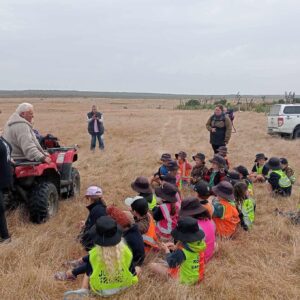Anna Woodman-Aldridge, age 12

“Kapa haka is singing and putting your heart into a different language,” says Anna Woodman-Aldridge. “I joined kapa haka because my dad did it. It was rolling in my family. My sister and my dad did it, and most of my friends do it.”
Woodman-Aldridge’s father Peter (Ngāti Porou, Ngai Tahu) was a school Board of Trustees member, and passed away in 2016. He was active in bringing te ao Māori into the school, and would have been very proud of her, says teacher Rangi Halbert. Woodman-Aldridge’s mother, Angela, says the aroha and support of teachers, especially Halbert and the kapa haka group, have helped her through her loss.
Her father was strongest in his reo in the family, but both parents have been supportive of kapa haka. Woodman-Aldridge says, “Even my grandma comes along sometimes. My family help me learn the words, put my hair up and put the earrings on.”
She enjoys the leadership side of kapa haka. “My favourite part has probably been the kaikaranga – it’s a leadership role and it’s just really fun to be one of those people. I started off not really liking it, and now I just love it. I’m so much better at it now. Rangi [Halbert] just believed in me, and I became really good. … It’s definitely good that our whole school does it. Everybody enjoys it.”
She also has another leadership role within the school. “I’m a mediator. That means helping little kids with their problems, to speak up more. We do it once a week. We have a mediation desk, a red desk, and they come up to us if they’ve got a problem. We’re leaders and we got chosen for that role. Kapa haka definitely helped me put my heart out there.”
Ethan Hindry, age 12

“I joined kapa haka because I would like to keep the language of te reo Māori alive in New Zealand, and because it looked really, really fun,” says Ethan Hindry. “It’s something that’s totally different to many other languages and it’s really fun.”
Hindry’s ancestors are English New Zealanders. His grandparents arrived in New Zealand only 45 years ago. “I have no family that’s ever done kapa haka,” he says. “It’s all in my heart. My family are really proud about me doing it, because they’ve come from England, so they don’t do it over there.” His parents were not involved in kapa haka at school. “It just wasn’t a thing 30 years ago – it hadn’t come to what it is today. I’m trying to help them pronounce some words now, and some phrases.”
His favourite role in kapa haka is taking his turn at being the kaea, leading the haka. “I really enjoy the haka. You can just put everything into it, your heart and everything.”
As well as speaking te reo and leading the haka, Hindry’s other leadership role is that he’s a referee for junior rugby and touch rugby. He says he will definitely continue with his reo and kapa haka throughout his schooling.




